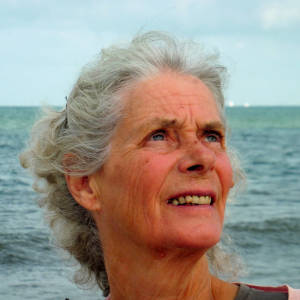A MYSTERY YET UNSOLVED
When I filled the birdtable near the hut, that we had build a bit higher up, something odd caught my eye. I had made a bench there, just a bit lower on the slope, last summer. Not that we had sat there often yet. Due to the not too good weather. One could sit there in the morning or in the evening (Abendsitz, that's how we got the idea) enjoying a bit of the view, read a novel, write a poem perhaps, humming a song.
Yesterday I had spread some hazelnuts on it, the ones that I had collected in autumn in The Hague, under a full hazelnut tree.
When, some months ago, I had laid some nuts in the evening ouside , it had been Obvious to me that the raccoons were not interested in these special nuts.
This morning I found some hazelnuts still lying on the bench (I had not count them anyway so I did not know if some animal had taken any of them). But to my big surprise I found quite a few beech-nuts lying on the bench. That I for sure had not put there. Were they from our beech? In autumn there had been lots of nuts but nuts can hardly fall from a complete bare tree.
Who had done that? Could it be a token of gratitude of some squirrel? Or....?
No, the raccoons I reckon could not to have done such thing.
They come, they eat, they disappear. Bringing me nuts would be a miracle of some kind.
Odd things can happen, I know!
The temperature was low today, the sky overcast, a fierce wind when one went around the corner.
I walked my little tour, first to the end of our street, and from there I can give a view of what I see when I stand there. Overlooking the valley.
Tonight we will walk down again and watch a film made by the architecture students of the university of Kassel about our town, giving ideas for the near future. We heartely love to let us surprised.
My haiku:
I found the snowdrops
Patience they cried we must have
You better have too
So the tiny flowers of the snowdrops did not yet evolve, the green leaves small and nearly covered under the snow.
And the proverb:
It is easy to bowl down hill.
1639 in J. Clarke, Paroemiologia Anglo-Latina.

Comments
Sign in or get an account to comment.


